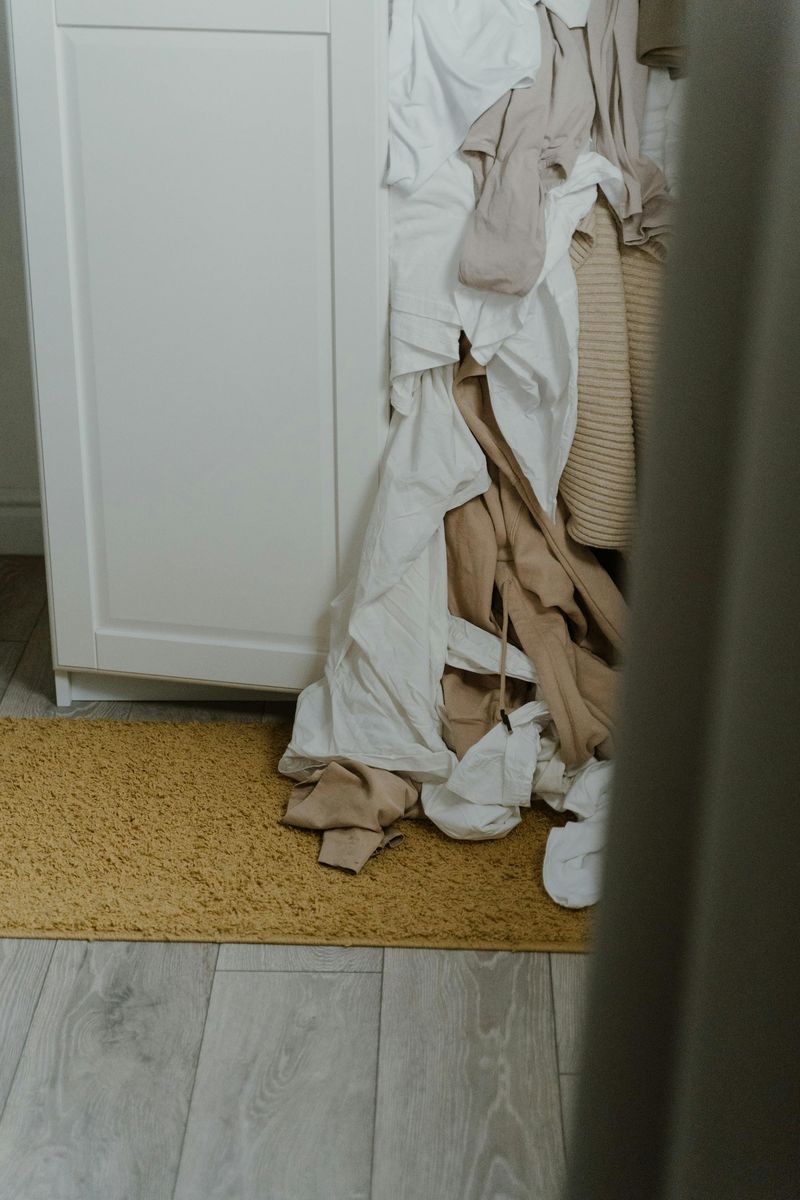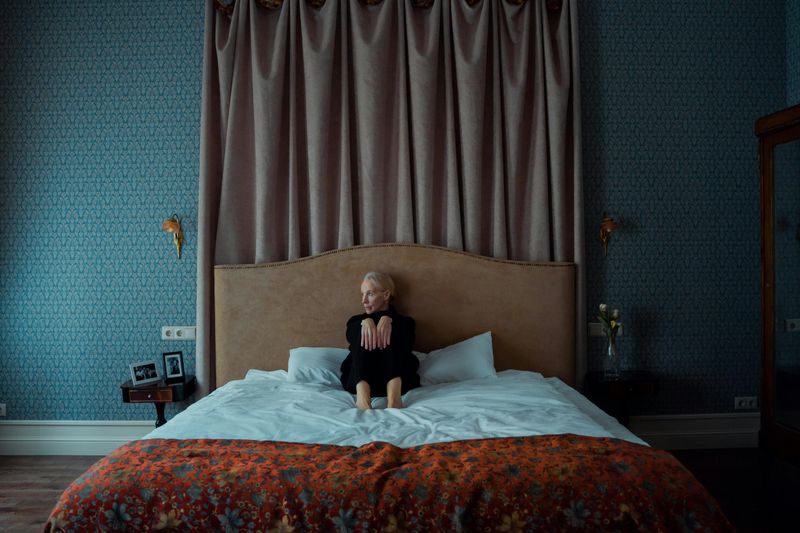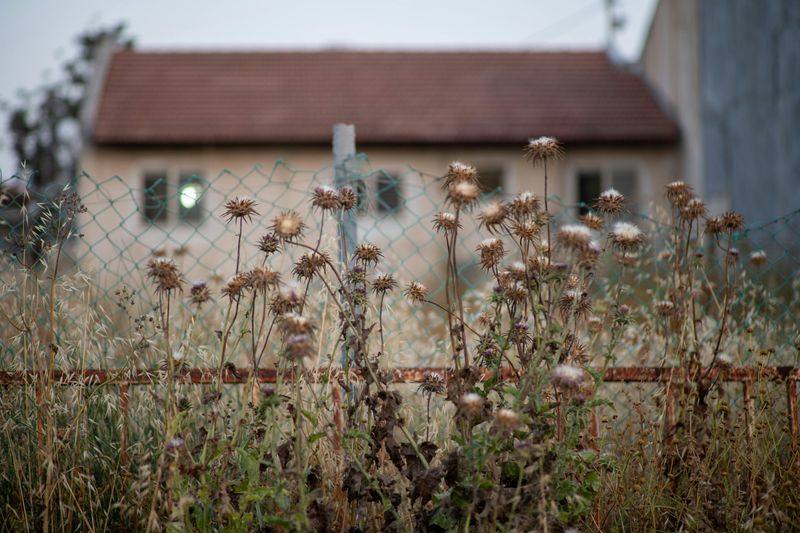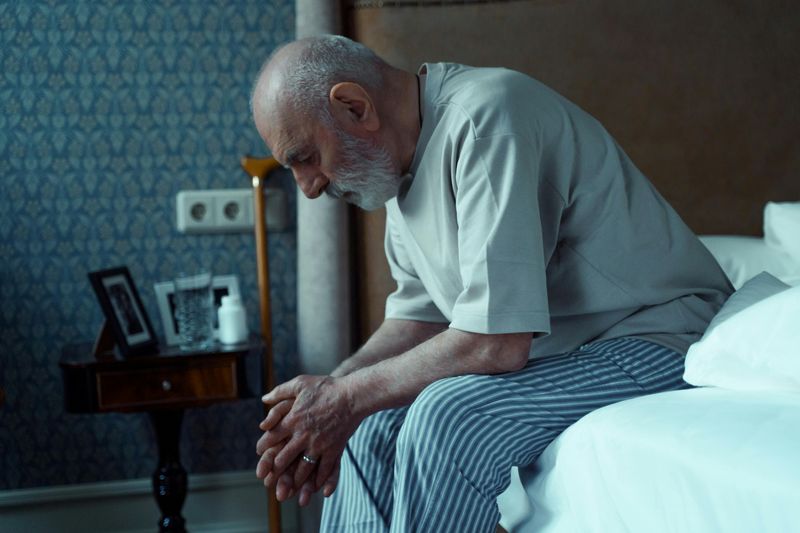13 Subtle Clues Around the House That Show Your Parents Are Secretly Struggling

Noticing changes in our parents’ behavior can be tough, especially when they try to hide their struggles. Our childhood homes often hold silent clues that something isn’t quite right. These everyday signs are easy to miss but important to recognize so we can offer help before small problems grow bigger. Here are 13 household signals that might indicate your mom or dad needs support.
1. Mounting Clutter in Common Areas

Laundry piles that never seem to shrink or overflowing trash bins might signal more than just a busy week. When normally tidy parents let household messes accumulate, it often reflects inner turmoil.
The physical environment mirrors mental state – when emotions overwhelm, basic chores feel impossible. Look for unusual patterns, like dishes stacked for days or clothes heaped on chairs.
Parents experiencing depression or physical pain may lack energy for daily cleanup tasks they once handled effortlessly. This visible disorder is often their body’s way of whispering what their words won’t say.
2. Forgotten Food in the Fridge

Moldy cheese, wilted vegetables, and long-expired yogurt containers tell a story beyond simple forgetfulness. A refrigerator filled with spoiled food often indicates your parents are disconnected from daily routines or struggling with memory issues.
Nutrition neglect frequently accompanies emotional distress or cognitive decline. You might notice they’re buying groceries but forgetting to actually eat them, or purchasing duplicate items unnecessarily.
Elderly parents might avoid cooking due to diminished senses of smell and taste, making food less appealing. This seemingly small household detail can reveal significant health concerns worth addressing compassionately.
3. Untouched Mail Mountain

Bills, magazines, and letters forming precarious stacks throughout the house reveal avoidance behaviors that shouldn’t be ignored. Unopened mail piling up suggests your parents might be overwhelmed by responsibilities or experiencing anxiety about financial matters.
For older adults, complicated paperwork can become intimidating, especially if vision or comprehension issues have developed. The growing pile represents tasks they can’t face – sometimes hiding unpaid bills or important medical notices.
Watch for mail sorted into anxious little piles or stuffed into drawers out of sight. This physical manifestation of procrastination often signals deeper troubles with organization, finances, or executive function.
4. Chronically Unmade Beds

Rumpled sheets and blankets left in disarray day after day speak volumes about your parents’ mental state. While everyone occasionally skips this routine, consistently unmade beds often indicate disrupted sleep patterns or depression.
Morning routines require physical and emotional energy that struggling parents might conserve for absolute necessities. The bedroom becomes a reflection of inner chaos rather than a sanctuary for rest.
Parents battling insomnia might avoid their bedroom entirely, making the bed a visual reminder of another difficult night. This subtle sign deserves attention when it represents a change from their normal habits, particularly if accompanied by unusual daytime fatigue.
5. Visible Unpaid Bills

Envelopes stamped “PAST DUE” scattered on countertops signal financial distress your parents may be reluctant to discuss. Pride often prevents older generations from admitting money troubles, leaving these paper clues as their only communication.
Financial struggles manifest in visible ways – utility disconnection notices, collection letters, or checkbooks with numerous cross-outs suggesting calculation difficulties. Parents might hide major money problems while these everyday indicators remain in plain sight.
Rising healthcare costs, fixed incomes, and unexpected expenses can quickly overwhelm seniors. When you spot these paper warnings, consider it an invitation for a gentle conversation about whether they need assistance managing household finances.
6. Makeshift Mobility Adaptations

Furniture rearranged to create pathways or chairs strategically placed throughout the house reveal unspoken physical limitations. Parents often implement these DIY solutions rather than admit they need help navigating their own homes.
Look for unexpected items repurposed as walking aids – brooms used as impromptu canes or countertops showing wear from being leaned on regularly. These silent modifications speak to declining mobility they’re trying to manage independently.
Towels on slippery bathroom floors, bedroom items moved to living areas to avoid stairs, or new furniture arrangements that create hand-holds throughout the house all indicate physical struggles. These adaptations show both vulnerability and determination to maintain independence despite growing challenges.
7. Barren Walls and Surfaces

Family photos suddenly missing from walls or decorative items packed away can signal emotional withdrawal. The disappearance of personal touches often reflects a parent’s disconnection from meaningful memories or relationships.
Empty spaces where cherished objects once stood sometimes indicate preparation for downsizing they haven’t discussed yet. Other times, it reveals depression’s subtle influence – when joy fades, the desire to surround oneself with happy reminders diminishes too.
Parents experiencing cognitive decline might remove items they can no longer identify or that cause confusion. This environmental barrenness creates a visually stark contrast to the vibrant, memory-filled home you remember, quietly revealing their changing relationship with their surroundings and past.
8. Lingering Household Odors

Unusual smells that persist throughout visits often indicate self-care challenges your parents face. Our sense of smell typically diminishes with age, making older adults less aware of household odors that seem obvious to visitors.
Musty laundry piles, unwashed dishes, or spoiled food odors might point to physical limitations making chores difficult. Sometimes medication side effects reduce energy for cleaning routines they once maintained effortlessly.
Pay special attention to personal hygiene odors, which might indicate bathing difficulties due to fear of falling or inability to manage shower steps. Rather than embarrassing them with direct comments, consider how to compassionately address the underlying causes of these olfactory clues.
9. Neglected Yard and Garden

Overgrown grass, untrimmed bushes, and flower beds reclaimed by weeds reveal physical or emotional struggles extending beyond the home’s walls. Gardens that once showcased your mother’s pride or lawns your father meticulously maintained don’t typically surrender to nature overnight.
Outdoor maintenance requires consistent physical stamina many aging parents gradually lose. Pride often prevents them from hiring help or asking family members to take over these visible responsibilities.
Weather-damaged items left unrepaired, empty bird feeders, or abandoned gardening tools suggest activities they’ve reluctantly surrendered. These outdoor spaces often deteriorate first as parents conserve limited energy for indoor necessities, making yard neglect an early warning sign worth noticing.
10. Overlooked Safety Hazards

Loose railings, burned-out lightbulbs in stairwells, or extension cords stretched across walkways signal concerning blind spots in your parents’ safety awareness. These hazards accumulate gradually as vision declines or mobility changes alter how they navigate familiar spaces.
Bathrooms deserve special scrutiny – missing grab bars, slippery rugs, or inadequate lighting increase fall risks dramatically. Kitchen dangers like outdated appliances left plugged in or flammable items near stovetops reveal judgment changes that happen subtly.
Parents often dismiss these risks, having navigated their home for decades without incident. However, these overlooked dangers frequently precede accidents that could have been prevented with simple modifications, making them crucial early indicators that support may be needed.
11. Impersonal Living Spaces

Rooms that feel more like hotel accommodations than personal sanctuaries often reveal emotional withdrawal or preparation for life’s final chapter. The absence of comfort items – favorite throws, personal books, or hobby materials – suggests your parents may be mentally disconnecting from their surroundings.
This environmental sterility sometimes appears after losing a spouse, when grief prompts removing painful reminders. Other times, it reflects depression’s ability to drain meaning from once-treasured possessions.
Watch for spaces that feel “maintained” rather than “lived in” – technically clean but lacking warmth and personality. This subtle shift from a vibrant family home to functional housing often precedes discussions about assisted living or indicates emotional struggles that deserve gentle exploration.
12. Disrupted Sleep Evidence

Television flickering at 3 AM or kitchen lights burning through the night point to sleep disturbances your parents may not voluntarily discuss. Pillows and blankets appearing on couches suggest they’re avoiding their bedroom entirely.
Sleep medications left prominently on nightstands or multiple alarm clocks indicate they’re actively battling insomnia. Morning coffee cups with afternoon newspapers nearby reveal schedule shifts that might stem from pain, anxiety, or medication side effects.
Sleep disruption profoundly impacts cognitive function and emotional regulation, creating a troubling cycle. Parents experiencing chronic sleep deprivation often show personality changes, memory issues, or daytime fatigue that compounds other challenges they face, making this a particularly important household clue to address.
13. Social Calendar Gaps

Empty refrigerator doors once covered with community event flyers or blank spaces on previously full calendars reveal social withdrawal that often accompanies parental struggles. The absence of church bulletins, friend invitations, or community group reminders suggests your parents are retreating from connections that once enriched their lives.
Holiday decorations left in storage or traditional gathering preparations abandoned might indicate they feel overwhelmed by social obligations. Sometimes physical limitations make participation difficult, while other times depression dampens their desire for interaction.
Phone calls that go unreturned or visiting friends mentioned less frequently point to isolation that can accelerate cognitive decline. This social disconnection often happens gradually but represents one of the most concerning household indicators that intervention may be needed.

Comments
Loading…